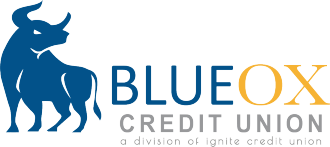how do certificates of deposit (CDs) work?
As interest rates continue to rise, you may have heard about various investment opportunities. One available option is opening a Certificate of Deposit (CD). While CDs are considered one of the safest investments, how exactly do they work? Continue reading to learn everything about CDs and help determine whether opening an account would be right for you!
what is a CD?
A CD is a special type of savings account and investment opportunity. With a CD, you deposit a specific amount of money into the account under the agreement that you'll not withdraw any of the funds during a certain amount of time. At the end of the term agreement - you get your money back, plus whatever interest was earned on the account!
CD benefits
Financial experts consider CDs one of the safest and most beneficial investment opportunities! One reason is that you can’t lose money on a CD if it’s insured. CDs opened at financial institutions are protected by the Federal Deposit Insurance Corporation or National Credit Union Administration for up to $250,000 per person. As stated before, CDs also offer higher interest rates, which allows you to make more profit than you would from other investment opportunities - such as money market accounts. These factors make CDs a very low-risk and lucrative investment option!
CD terms to know:
- Annual Percentage Yield (APY) – The APY is the interest rate on the CD and determines how much interest you’ll earn after your CD matures.
- Term Length – The term length is how long you want to deposit your money. Common lengths for traditional CDs include 6, 12, 18, 24, and 30 months. Typically, the longer the term length, the higher the interest rate.
- Deposit Requirement – This is the minimum amount you must deposit into the CD. Most require at least $500 - $1,000 to open, although you can always contribute more than the minimum if you’d like to earn more profit.
In general - higher interest rates, longer terms, and larger deposits will earn you more profit. However, if you anticipate needing your funds sooner, a shorter term might be the better option. Also, remember that you’re locked into your agreed APY for the entire term. So, if your financial institution suddenly offers a better rate while you're still within your term length, you won’t be able to take advantage of it.
Many financial institutions offer limited-time deals on their certificates. Chat with the financial experts at your bank or credit union to find the best CD terms for your needs – they’ll be more than happy to help!
should I open a CD?
One of the most important factors to consider before opening a CD is whether you're confident you won’t need the funds you deposit before the agreement ends. Suppose you can’t afford to make it through an unexpected financial hardship without that money. In that case, it’s probably not the right time to invest in a CD. Because removing your cash too early will result in penalties from your financial institution. Also, keep in mind the common differences between a CD and other savings accounts, including:
- Larger initial deposit requirements.
- Inability to withdraw your funds until the end of the fixed term.
- Inability to add funds to the CD after the initial deposit.
If you're comfortable with these differences - a CD might be the perfect option! Just make sure you understand the exact terms of your agreement - including possible penalties and your insurance coverage - before moving forward!
pro tip: Some financial intuitions allow members to use their CD as collateral for a certificate-secured loan. This is a very beneficial option for those looking to build or rebuild their credit. At BlueOx Credit Union, you can pledge the funds already deposited into your CD to secure a credit builder loan at a competitive interest rate. Click the following link to learn more:
how to open a CD
It’s easy! You can apply for a CD online or in person at your financial institution. At BlueOx Credit Union, our Member Service Advisors are always available to help you get started and answer any questions you might have about the process!
will a CD affect my credit?
In general, CDs don’t affect your credit in one way or another. However, some financial institutions may make a hard pull on your credit report when you apply for a CD. A hard pull will show up on your credit report history - so if that’s a concern, make sure you ask about it before the process begins.
what happens when my CD matures?
It’s time to collect your funds! A maturing CD means you have reached the end of your term agreement. Your financial institution will reach out shortly before the maturity date to provide you with various financial options. These include reinvesting your funds into another CD or utilizing other services they offer. If you want a break from investing, however, you can simply withdraw your money and move on!
what’s next?
Does a CD sound like a great investment opportunity for you? If so, BlueOx Credit Union has you covered! Our Certificate Accounts offer competitive rates and flexible terms options.
- 5% certificate special - For a limited time, earn 5.00% APY* on a 5-month Certificate of Deposit at BlueOx Credit Union! Whether you're saving for something special or simply looking to grow your money a bit faster, this is a great opportunity to get started.
Apply today by clicking the button below, within Online Banking, stopping by any of our branches, or calling a Member Service Representative at (800) 648-8035.
*APY = Annual Percentage Yield. APY is accurate as of August 11, 2025. Fees may reduce earnings. To receive the promotional rate of 5.00% APY, the 5-month CD must be opened with a minimum of $500. Rates are subject to change without prior notification. Penalties will apply for withdrawal before the maturity date of the CD. Dividends are posted monthly. Limited-time offer. Federally insured by the NCUA.
« Return to "BlueOx Blog"

